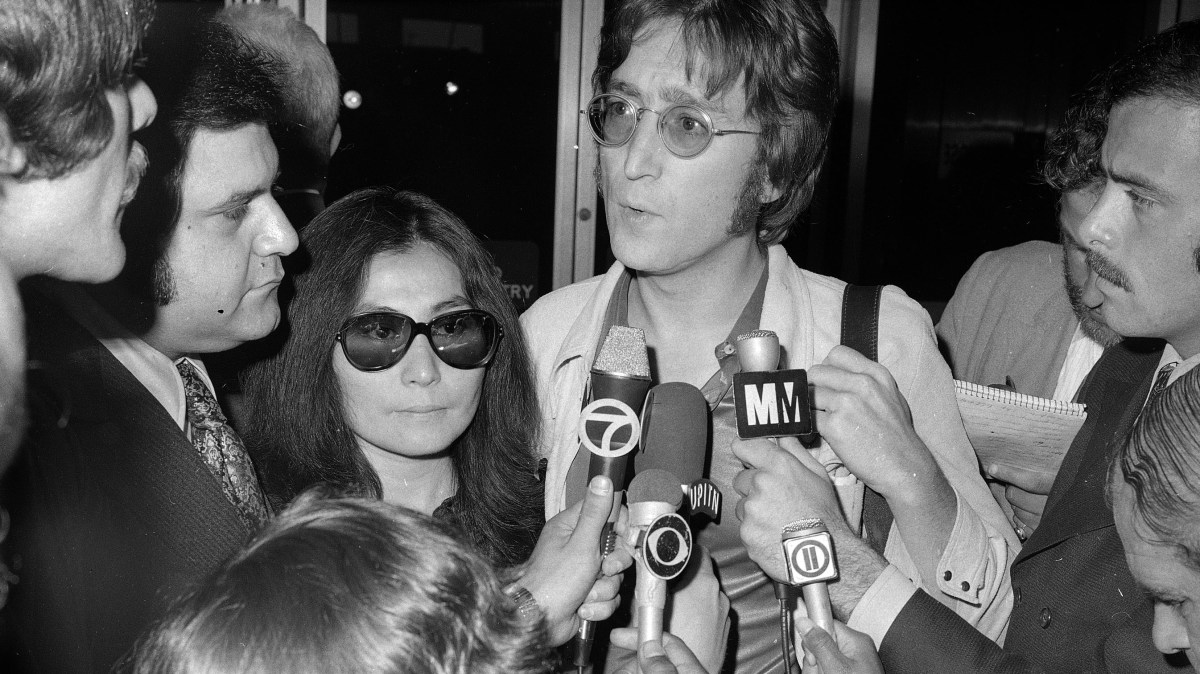Earlier this year the Boom Radio DJ Nicky Horne’s wife was clearing the family basement when she unearthed a box of reel-to-reel tapes. Thankfully she asked her husband if he wanted them before chucking them out because the box contained buried treasure: an interview with John Lennon from 1975 in which the former Beatle claimed he was being bugged, followed and surveilled by the US government.
“I know the difference between the phone being normal when I pick it up and a lot of noises,” Lennon tells Horne, who in 1975 was a 25-year-old journalist for Capital Radio. He got the interview with Lennon after Kenny Everett turned it down because it would be, according to Lennon, about “heavy stuff”.
“I was paranoid at the time. Who wouldn’t be?” Lennon continues. “I would open the door and there would be guys on the other side of the street. I got in the car and they were following me and not hiding it. They wanted me to see I was being followed.”
• The Beatles biopic has its cast — here are the stories it should tell
Lennon claimed to have been on the CIA’s watch list since the 1971 release of Gimme Some Truth, a protest song against President Richard Nixon and his response to Vietnam, and he wasn’t the only one. “People like Mick Jagger, Paul [McCartney], George [Harrison], they all have trouble getting in and out of the country,” he tells Horne. “Mick had to vanish up his own manhole to get Keith [Richards] and the rest of them on tour, even. He did a lot of behind-the-scenes work just to be allowed in.”
The tapes, presented in an interview with Horne on Boom Radio, reveal not just the paranoia of the American administration of the time, they also serve as a portrait of one of the world’s most famous rock stars as he tried to live something resembling a normal life at the Dakota Building in New York with Yoko Ono.
Horne recalls Lennon opening the door, saying, “How” with a raised fist, and giving him some homemade cookies. From there they went into an all-white living room, with a white rug, a white grand piano and a brass telescope looking out on to the Hudson River, sat on the carpet — not the sofas — and chatted about London, radio and other things before Lennon got on to the “heavy stuff”. Rapt as he was, Horne spilt some chocolate cookie crumbs onto the pristine white carpet. He tried to pick them up without Lennon noticing.
• Read music reviews, interviews and guides on what to listen to next
Lennon couldn’t prove his phone was tapped. “All I know is, there’s a lot of repairs going on in the cellar,” he says. Horne also talked to the former Beatle about his nostalgia for Britain, confining his life to “a bed, a studio, a TV”, getting back with Yoko Ono after his “Lost Weekend” year in Los Angeles and almost throwing away Walls and Bridges, the album made during that dissolute time. “Yeah, I’m back with Yoko and it’s rather nice,” he says. “I feel a bit sane again. It’s all right wondering whether the grass is greener but when you get there it’s more grass.”
One of the most poignant moments comes when Horne asks Lennon about the critical response to the Beatles and his solo albums. “How can somebody pin down Imagine and decide it’s the best album I’ll ever make, and I’m 34? Bar acts of God or whatever, I’ll be around for another 60 years.” As it turned out, he was only around for another five.

